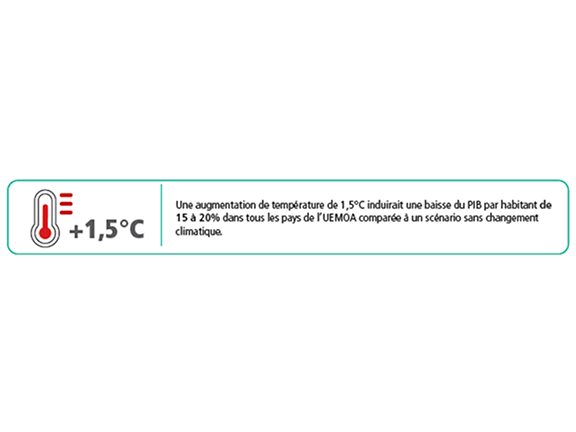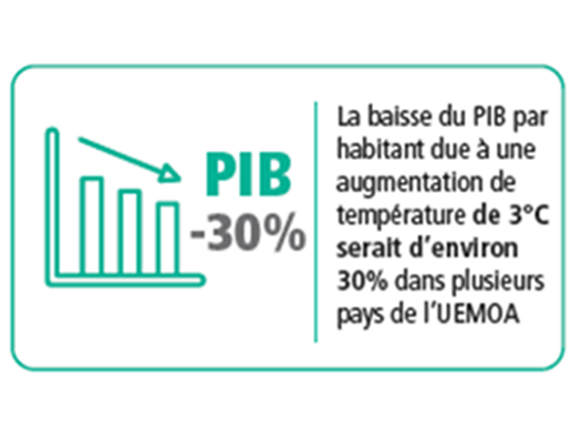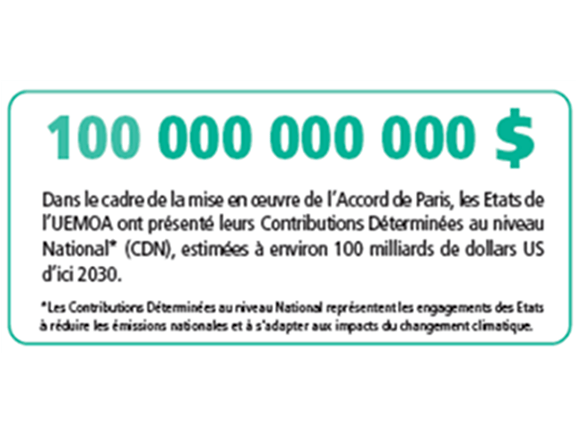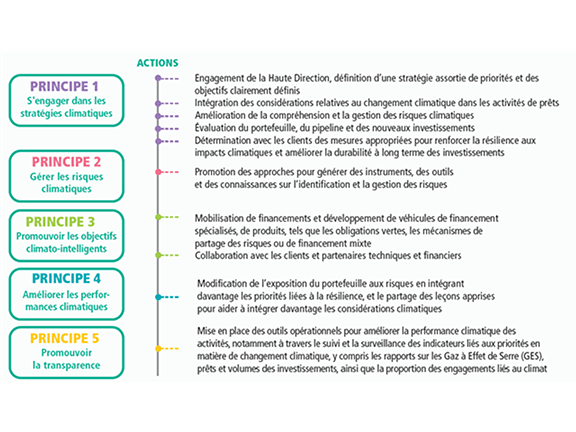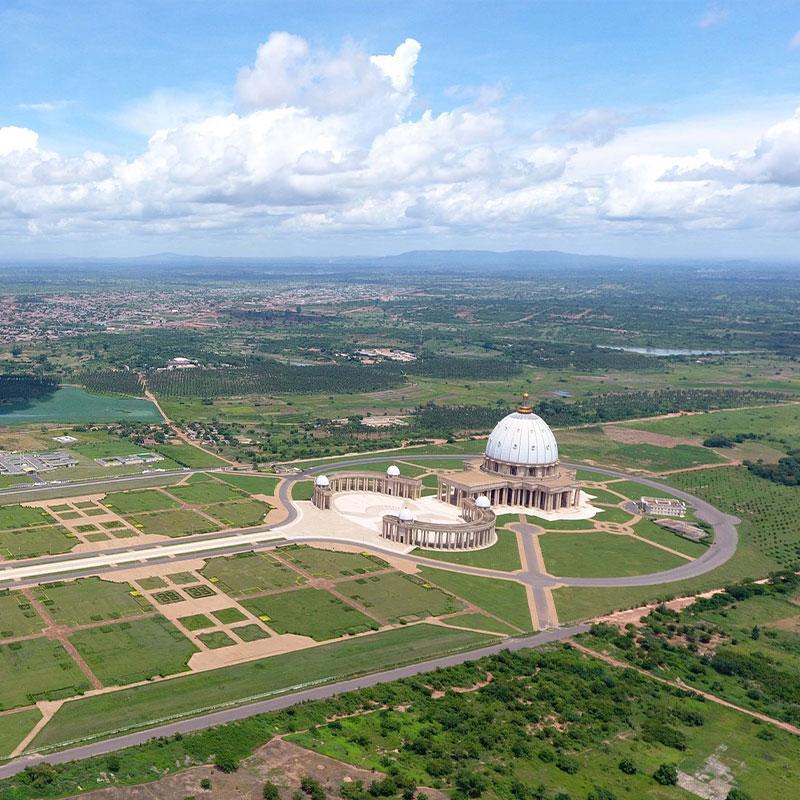On a global scale, the current level of national emission reduction commitments would lead to warming of 1.5°C to 3°C by the end of the century (IPCC, 2019).
By 2050, a temperature rise of 1.5°C would lead to a 15-20% drop in GDP per capita in all WAEMU countries, compared to a scenario without climate change. Over the same time horizon, the drop in GDP per capita due to a 3°C temperature rise would be around 30% in Burkina Faso, Mali and Niger. In the other countries of the zone (Benin, Guinea Bissau, Senegal and Togo), the decline would be slightly below this order of magnitude.
